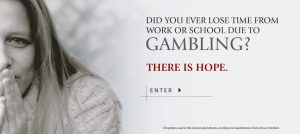Dear Dr. Neimeyer,
My husband has been gone a year now. I went gambling to blot everything out or get away from home, but now my nephew and oldest son say I need help. Although I have started to quit the vice, I don’t want to pay for professional help. I think I am being used as a whipping post.
Meg
Dear Meg,
When we experience the pain of grief or loneliness, it is a natural thing to try to escape them by immersing ourselves in a very different reality, and the bright lights, sounds, excitement and sometimes companionship provided by many casinos and other gambling establishments seem tailor-made to provide this. But of course they do so at a cost—as their substantial profits are inevitably at the expense of their patrons—and like other addictive behaviors, the highly reinforcing environment they carefully construct can be difficult to resist or disengage. This is doubly so for grieving spouses, who otherwise may return to a silent home and many unanswered questions about how to reconstruct their lives after loss. This is one reason that widows, and especially older widows, are a vulnerable target group for the gaming industry.
While it is possible that your son and nephew are overreacting to your gambling or avoidance of your grief, it is also worthwhile to take a candid inventory of the impact of gaming on your life. Realistically speaking, can you estimate the amount you have lost over the last year? How do your savings now compare with your savings a year ago? What relationships and pastimes have grown weaker as the gambling behaviors have grown stronger? And if someone were lovingly concerned for your well-being in relation to what you yourself term a “vice,” how might he or she talk to you about this honestly? The very fact that you are bravely trying to quit gambling suggests that you sense its costs, and are looking for help. One place to consider investigating is Gambler’s Anonymous, which you can readily find on the internet by clicking this image:
Like mutual support groups for other forms of addiction, it is committed to helping those whose striving to recover their lives from this self-reinforcing cycle of behavior—a fitting companion to other mutual support sites and groups that can assist you in adapting to bereavement.
Dr. Neimeyer

